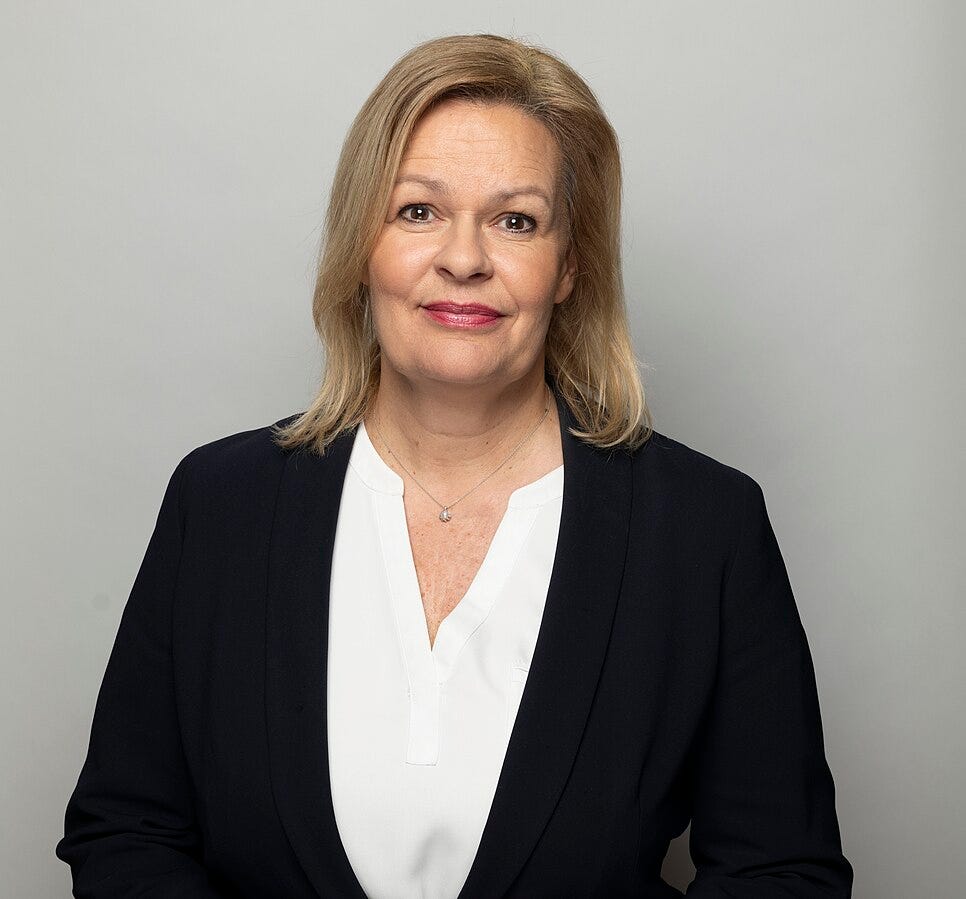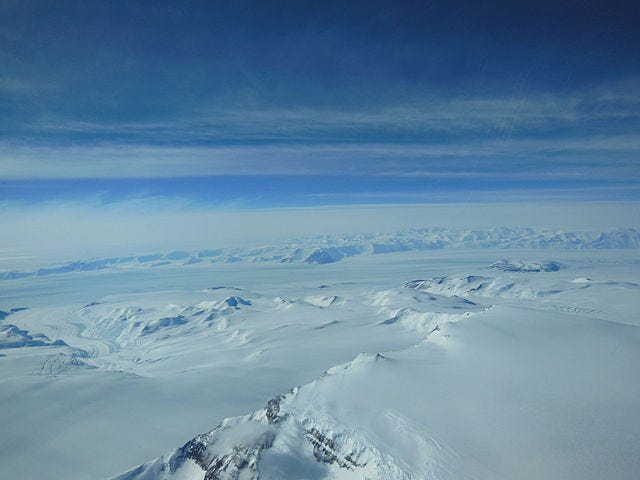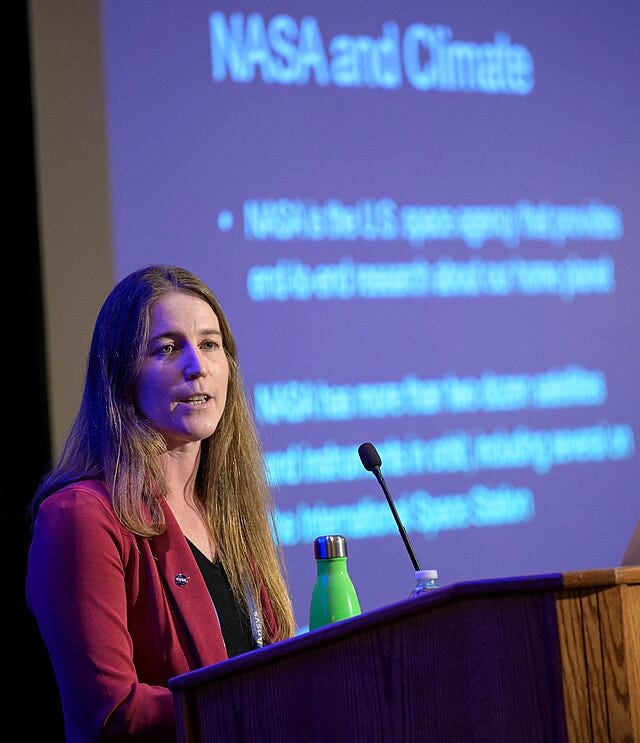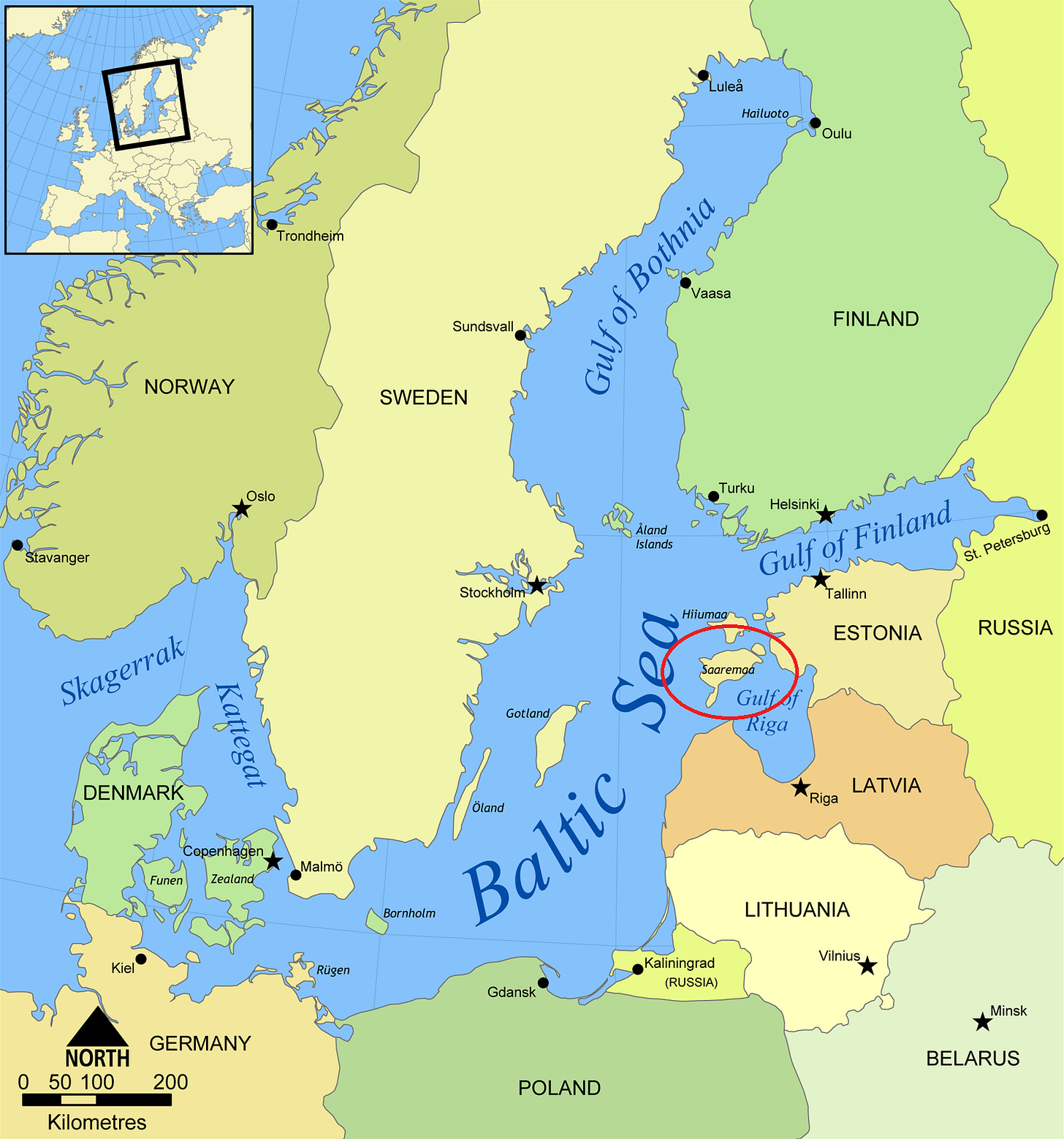News Round-Up: Germany Launches Gov Office against ‘Conspiracy Thinking’, Russia Developing Surveillance State, and Antarctic Ice Not Shrinking
Every week, the editorial team of Freedom Research compiles a round-up of news that caught our eye, or what felt like under-reported aspects of news deserving more attention.
Over the past week, the following topics attracted our attention:
Germany’s new government office deals with ‘conspiracy thinking’.
Antarctic ice growing, not shrinking.
NASA eliminates climate science advisor’s position, DEIA office.
Russia developing surveillance state: model city Sirius.
German spy agency: Covid started in a lab.
Germany’s new government office deals with ‘conspiracy thinking’
The German Government has set up a new advisory office aimed at supporting those affected by conspiracy narratives, misinformation, and disinformation, Brussels Signal reports. Announced in Berlin on February 27, the Advisory Compass Conspiracy Thinking initiative was backed by the Federal Ministry of Family Affairs and Interior Ministry.
Outgoing interior minister Nancy Faeser of the Social Democratic Party (SDP) warned that conspiracy narratives were “deliberately spread to divide society and erode trust in independent science, free media, and democratic institutions”. She argued that such narratives ‘can fuel extremist ideologies and incite criminal or violent acts, with antisemitic conspiracy theories being particularly widespread’. Faeser also noted that family members, friends, and colleagues were often the first to notice when someone was influenced by conspiracy thinking: “Open dialogue at eye level often seems impossible because the other person is not open to arguments.”

Outgoing family minister Lisa Paus of the Greens echoed those concerns.
The new office will offer initial guidance and, if necessary, refer individuals to specialised counselling services. “This way, we provide concrete support to those affected and their loved ones while also strengthening prevention efforts,” Paus said.
Antarctic ice growing, not shrinking
New discoveries arising from long-forgotten early aerial photographs indicate that ice has remained stable and even grown slightly since the 1930s over a 2,000 km stretch of East Antarctica, The Daily Sceptic writes. In a recent paper published in Nature Communications, researchers from the University of Copenhagen came to their conclusions by tracking glacial movement in an area with as much ice as the Greenland ice sheet.
The Copenhagen scientists examined hundreds of old aerial photographs taken for mapping work in 1937. The images were supplemented with a number of photographs taken in the 1950s and 1974 of the same area and a 3D computer reconstruction was produced. This allowed the researchers to examine the evolution of glaciers over a significant time period. In order to determine if recent trends exceed the scale of natural variability, long-term observations are said to be vital.

“Compared to modern data, the ice flow speeds are unchanged. While some glaciers have thinned over shorter intermediate periods of 10-20 years, they have remained stable or grown slightly in the long term, indicating a system in balance,” it was noted.
The authors note that using data from historical sources such as early photographs provides extensive coverage across large areas with detailed temporal and three-dimensional information. Geological evidence covers longer time scales with temporal uncertainties of thousands of years, while estimates from ice cores are generally very local and spatially confined. In Antarctica, it is pointed out, the scarcity of historical climate data makes climate reanalysis estimates before 1970 “largely uncertain”, while “observed trends cannot clearly be distinguished from natural variability”.
Another recent paper also found the ice shelves surrounding Antarctica grew in their overall size between 2009 and 2019.
NASA eliminates climate science advisor’s position, DEIA office
NASA announced this week it will eliminate its Office of the Chief Scientist, which dealt with the topic of climate change, Science Adviser writes. Offices advising the agency on technology, strategy, and coordinating its diversity, equity, inclusion, and accessibility (DEIA) efforts are also being axed. The reductions, which will eliminate two dozen jobs, come as part of the agency’s ‘reduction in force’ mandated by the White House.
The agency’s current chief scientist, Katherine Calvin, was appointed by former President Joe Biden to spearhead NASA’s efforts on climate change. Recently, she was prevented from traveling to a meeting of the United Nations’s Intergovernmental Panel on Climate Change in China.

NASA’s Office of Technology, Policy, and Strategy was only established in 2021 and serves as the home for the space agency’s chief economist and chief technologist, who provide the administrator ‘with analytic, strategic, and decisional insights in the form of quick-turn analyses, memos, and reports’. The third NASA office targeted, coordinating the agency’s DEIA efforts, was also the least surprising, as President Donald Trump’s administration has declared it would eliminate such efforts across the government.
Russia developing surveillance state: model city Sirius
According to Russia's Parlamentskaya Gazeta newspaper, a district of the former Olympic city of Sochi, now the 'model city' Sirius, plans to accelerate the introduction of robots, artificial intelligence, biometric technologies and digital rubble as means of payment in its markets, restaurants, cafés and other service businesses. The use of such solutions, which enable continuous monitoring and control of human behaviour, is being promoted as a convenience for people. Sirius's special legal status allows for their deployment without any particular constraints – the aim is to find the most effective solutions so that they can be rolled out across Russia at a later stage.

The federal territory of Sirius was established by a decree of the Russian President in 2020 and the city operates under an experimental legal regime. The territory will therefore be able to bypass bureaucracy and implement projects that will serve as a model for other Russian regions. This special status allows the government to apply specific legislation in the city. Thus, at the end of February, a draft law was presented in the State Duma that gives the local government the power to introduce special regulations for the introduction of artificial intelligence, robots, biometrics, and digital rubble in local life in Sirius, which is also home to education centre bringing together the most talented children and best teachers across Russia.
Russia is developing biometric payment systems using facial recognition also in other parts of the country as millions of terminals are planned to be installed across the country by the end of the year. The Russian media believe that a biometric revolution is on the horizon.
According to one report in February, the introduction of the digital rubble throughout the country has been postponed until next year, but preparations are nevertheless under way. The Bank of Russia says that the infrastructure is already in place, but testing is a year behind the schedule.
German spy agency: Covid started in a lab
Germany's foreign intelligence service believed there was an 80-90% chance that coronavirus accidentally leaked from a Chinese lab, German media said this week, according to BBC.
According to Die Zeit and Sueddeutscher Zeitung, the BND met in Berlin in 2020 to look into the origin of coronavirus in an operation called Project Saaremaa.
It assessed the lab theory as "likely", although it did not have definitive proof.
The BND also found indications that several violations of safety regulations had occurred at the lab.
The assessment was commissioned by the office of Angela Merkel, Germany's chancellor at the time, but was never publicly known until now.
According to the papers, the findings were shared with the CIA in the autumn of last year.
In January this year, the CIA said that a "research-related origin" of the pandemic was more likely than a natural origin "based on the available body of reporting" – although it cautioned it had "low confidence" in this determination.



